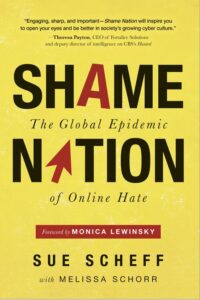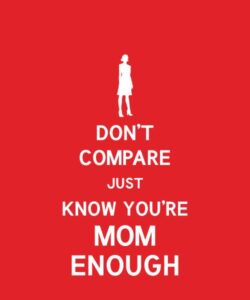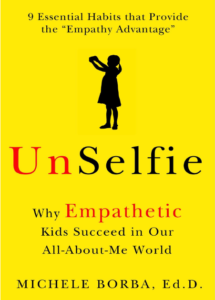“You let your child sleep with you!!!?”
“Why aren’t you breast-feeding??”
“You’re ruining your kids Ivy-League chances if you don’t enroll him in that school!!!”
“That’s a lame way to discipline!”
 Shaming is happening on a wide-scale level at play dates, the check-out line at the grocery store, school parking lots, or on Facebook. Every day, moms are shamed for their parenting styles-whether it’s slow parenting, free-range, helicoptering, tiger mummying or whatever. And it’s all too often.
Shaming is happening on a wide-scale level at play dates, the check-out line at the grocery store, school parking lots, or on Facebook. Every day, moms are shamed for their parenting styles-whether it’s slow parenting, free-range, helicoptering, tiger mummying or whatever. And it’s all too often.
After surveying 1,000 moms online, Beech-Nut found that 82 percent of millennial moms are aware of mom shaming as a serious issue. Nearly 80 percent admit they have been judged or shamed by someone they know. Those stats mean that Mommy Shaming permeates our day-to day parenting and the behavior isn’t improving.
I am very aware with those findings because I was at the New York event with Huffington Post that released them and then speak to a packed room of women as to why Mommy Shaming must stop. .
The Beech-Nut survey also found that nearly 70 percent of moms think the issue of mom shaming has gotten worse over the last five years and is even becoming normalized. That spells disaster to our families as well as society. And it should come as no surprise that the top place shaming takes place for moms-as well as the rest of us-is online.
Shaming Is the New Normal
 Cyber advocate, Sue Scheff, in her must-read book, Shame Nation: The Global Epidemic of Online Hate points out: “The culture of destroying people with the simple stroke of a keyboard has become much more than a fad-it’s the new normal. In today’s digitally-driven world, disaster is only a click away.”
Cyber advocate, Sue Scheff, in her must-read book, Shame Nation: The Global Epidemic of Online Hate points out: “The culture of destroying people with the simple stroke of a keyboard has become much more than a fad-it’s the new normal. In today’s digitally-driven world, disaster is only a click away.”
Scheff also cites disturbing statistics that parallel the Beech-Nut findings, and should set off moral alarms.
• 73 percent of American adults have witnessed online harassment; 40 percent say they were victims. (Pew)
• 70 percent of young Americans say they have been victims on cyber harassment. (Pew)
• 80 percent of workplaces now have a social media policy in effect. (Proskauer 2014)
If we hope to renew civility both off and online where humiliating, criticizing and judging are ubiquitous, Scheff’s book is an essential read. Shame Nation explores the fascinating phenomenon of online shaming, and offers real ways to stop the “Shame Game.” Scheff citing tips by renowned experts in the fields of psychology, law, crisis management, and public relations. And we haven’t a moment to lose! Shaming is toxic to mothers and their children, kills empathy, and destroys civility.
Why Shaming Is Toxic to Mothers and Their Children
Science is clear: shaming negatively affects a mother’s self-confidence, well-being, and parenting skills, and her children’s moral, social, and emotional health.
Shame is not the same as guilt. Guilt can actually be positive, and make you to make amends, change your behavior, say “I’m sorry.”
Guilt is “I did something bad.” But shame is “I am bad.”
Shaming negatively affects our parenting, so it affects our children. Here are four of many reasons we must put a screeching halt to this negative behavior.
1.Shaming lowers mom’s confidence: Whether deserved or not one who is judges doubts herself and questions her parenting decisions.
2. Shaming reduces mom effectiveness. So, the shamed mom gets further away from doing what works best for her and her family. And if kids see their mom being judged, they may second guess her parenting.
3. Shaming boosts stress. When a mom is stressed, kids pick up on their mom’s anxiety and feed off of it. That affects the children’s mood and self-esteem. One of the strongest factors in effective parenting is how moms manage stress because it feeds directly to our kids.
4. Shaming sends a bad example to our kids. We can tell our kids “Be nice,” but the example we set for kids is the example they copy. Our kids pick up on our level of self-confidence–and can mirror it.
Studies also show that moms who have experienced shaming are more likely to shame or judge another mom. That could indicate that mom shaming is a cyclical trend. Mom-shaming is cascading through the mom community – one shamed mom at a time. Hate and negativity begets hate and negativity, and those have absolutely no place in parenting.
Whether we’re the ones shaming or the ones being shamed the behavior is disastrous, but not just to ourselves. Shaming spills over to our children. Here are four science-backed adversities to shaming that I cite in UnSelfie: Why Empathetic Kids Succeed in Our All-About Me World and why I’m so adamant that it must stop.
1. Shaming damages brain connections. Brain imagery confirms that “spanking with words” by shaming, disdaining, or ridiculing could in fact damage children’s brain connections. That alone should make us halt the shame game.
2. Shaming lowers empathy. Shame is a proven empathy killer and is far more painful and less productive to learning to care than making kids feel guilty or embarrassed about their wrongdoing.
3. Shaming reduces self-esteem and boosts self-absorption. Shame degrades kids, makes them feel inferior and personally distressed, and heightens their preoccupation with other’s evaluations (“Mom thinks I’m a bad person”).
4. Shaming reduces caring. Studies show that shame-based discipline also makes kids less likely to feel for those they may have wronged.
Four Steps to Stop the Mommy Shame Games

Shaming hurts, and it makes no difference if it’s delivered online, behind another’s back, or face-to-face. The behavior creates an immediate disconnection. And shaming erodes empathy – the seeds of goodness and foundation to moral character and a civilized society. (See Why Empathy Gives Kids a Huge Advantage.
So, what can we do to combat mom-shaming? It is doable, if we use these four steps.
Step 1. Boost awareness. Changing any behavior starts with awareness. The more we understand why we must extinguish shaming, the sooner we stop. Read Shame Nation to boost your resolve to change. Listen closer so you can recognize shame-lased statements. While you’re at it, tune into your messages so you can censor any comment that isn’t helpful or respectful to another mother.
Step 2. Start a dialogue. Let’s begin to talk seriously about dangers of shaming as women. Start Mom Parlor Groups and hold proactive discussions on how ways to support fellow moms and why we must. And let’s start mom movement against judging others. We have #BeFierce, #LeanIn, and dozens of others, why not “StopShaming”?
Step 3. Defend shamed moms. “You didn’t deserve that” and “I’m here for you” can help moms who are judged, bounce back. Reminder: a happy mom always produces happier kids.
Step 4. Speak out against shaming. Finally, get gutsy. Stand up to moms who are judging other moms. Come on, we admonish our kids to “Speak up for your friend” but we aren’t applying the same rule. Sure, standing up to a judger takes courage, and you may not be invited to the “in” lunch group, but so be it! Speak up, and you just may find other moms are tired of hearing verbal abuse, and join you to help stop the shaming.
When we all come together to understand – and not judge – a mom’s parenting decisions, we’re able to empower each other to be the best mothers we can be. Supporting one another, and pledging to #StopShaming is how we improve our odds of raising happy, healthy, caring kids. And it’s also how we model to our children that “Kindness Matters” and build a more empathetic, inclusive culture.
I hope you’re with me.
#StopShaming!
It’s time to start an UnSelfie Revolution!

The ideas in this post are adapted from my latest book, UnSelfie: Why Empathetic Kids Succeed in Our All About Me World. It describes how to cultivate the Nine Crucial Habits of Empathy, and offers 300 strategies parents and teachers can use from toddlers to teens to do so. It’s time for a national conversation and to start an UnSelfie Revolution and discuss why empathy matters! I hope you join me!
Follow me as I share ways we can cultivate our children’s empathy, help them learn the Nine Teachable Habits of Empathy including: Perspective Taking, Moral Courage, Moral Imagination, Altruistic Leadership, Emotional Literacy, Collaboration, Kindness, and appreciate differences, and switch their attitudes from WE, not ME.
For more on the impact of shaming on our children refer to Chapter 3: Perspective Taking. Follow me on my website, or on Twitter.
Dr. Borba’s Reality Check Blog

